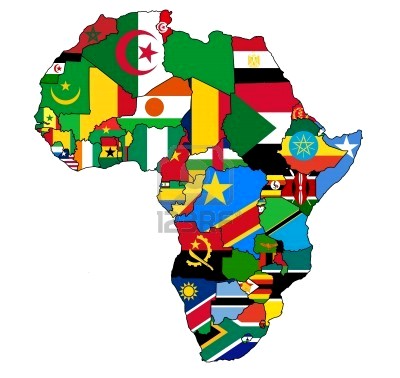Africa, Study of
The study of Africa has a long history. People have been gathering information about the continent since ancient times. Early reports came mostly from travelers, explorers, missionaries, and merchants. Later, scholars in fields such as history, anthropology, geography, and the natural sciences began to conduct research there.
Early Contact
In ancient times, people living outside Africa knew little about it. The Greeks and Romans were quite familiar with parts of North Africa, but they had limited knowledge of sub-Saharan Africa. Beginning in the A.D. 700s, the Arabs developed extensive contacts with peoples of the MAGHREB and began to explore areas south of the Sahara and along Africa's eastern coast. By the 900s Arabs had learned a great deal about the western and eastern parts of Africa through trade with the peoples of those regions.
European interest in sub-Saharan Africa began with voyages of exploration in the late 1400s. Explorers, missionaries, and merchants wrote about their visits to Africa, giving Europeans some basic information about the “dark continent.” In the late 1800s, as Europeans became involved in a mad “scramble” for colonies in Africa, scholars began to turn their attention to the region.

Colonial and Postcolonial Eras
The creation of colonies led to a more systematic gathering of facts about Africa. At the same time, European museums and private collectors began to acquire African artifacts. Explorers and geographers mapped the continent, and colonial authorities and social scientists began studying the customs, laws, and other aspects of African societies and cultures. Some colonial powers hoped to use the knowledge they gained to strengthen their control in Africa.
Throughout the colonial era, the interpretation of information about Africa generally reflected the ideas and viewpoints of Europeans rather than those of Africans. In the mid-1900s, as African nations gained independence, the study of Africa began to shift. New centers and associations dedicated to the study of Africa were established both on the continent and at universities around the world. Greater attention was paid to African points of view and research expanded into many different areas. From the 1960s to the 1980s, the Cold War created a boom in African studies. The competition between the United States and the Soviet Union for political influence in Africa generated great interest in the region.
Today political instability in many African countries makes fieldwork difficult. Nevertheless, Western and African scholars have begun an increasing number of joint research projects in which they share data and resources. In some African nations, the need to devote scarce financial resources to more pressing economic, political, and social programs has resulted in cutbacks in African studies.
Range of Research
African studies include a broad range of fields, from African LANGUAGES, LITERATURE, ART, music, and culture to African history, biology, economics, political science, geology, anthropology, sociology, religion, and philosophy. Some African studies focus on one particular area of study, such as language and literature. Others take an interdisciplinary approach that combines different areas of study and focuses on the relationships and connections among them.
One goal of African studies is to gain a greater knowledge of the forces that have affected Africa and its people over the centuries. Scholars also focus on discovering the roots of the problems facing Africa, such as widespread poverty, lack of economic development, ethnic conflicts, and political instability. Attempting to understand the continent from an African point of view is often a key feature of their work. (See also Archaeology and Prehistory, Economic History, Ethnic Groups and Identity, History of Africa, Maps and Mapmaking, Music and Song, Oral Tradition, Popular Culture, Travel and Exploration.)